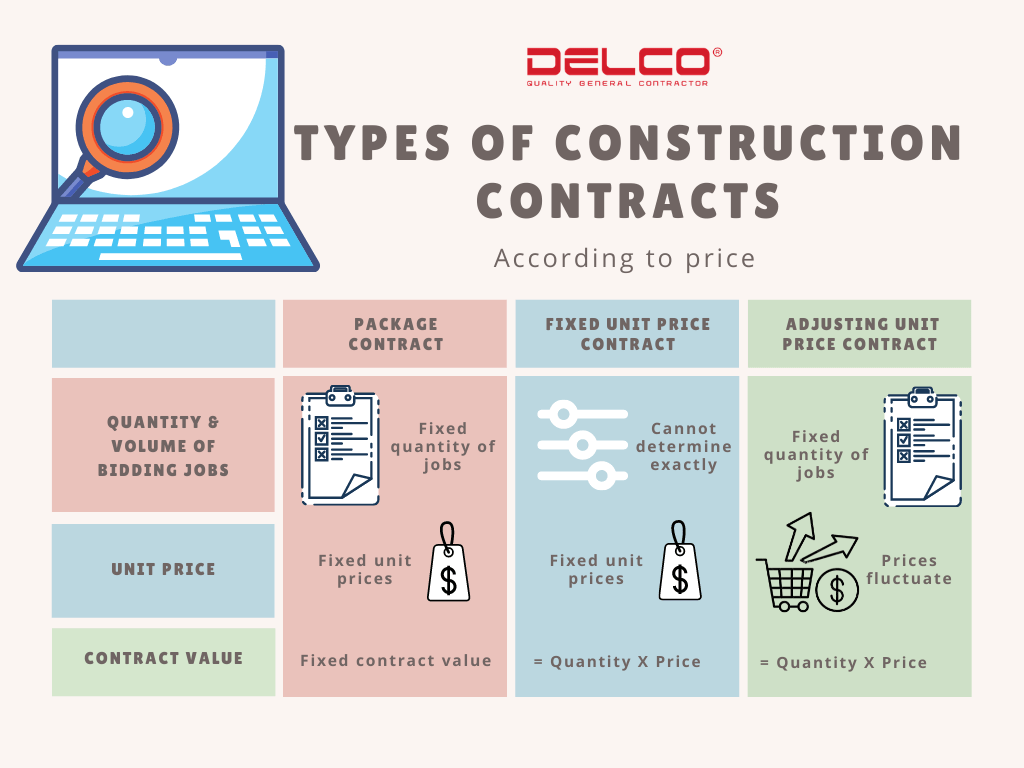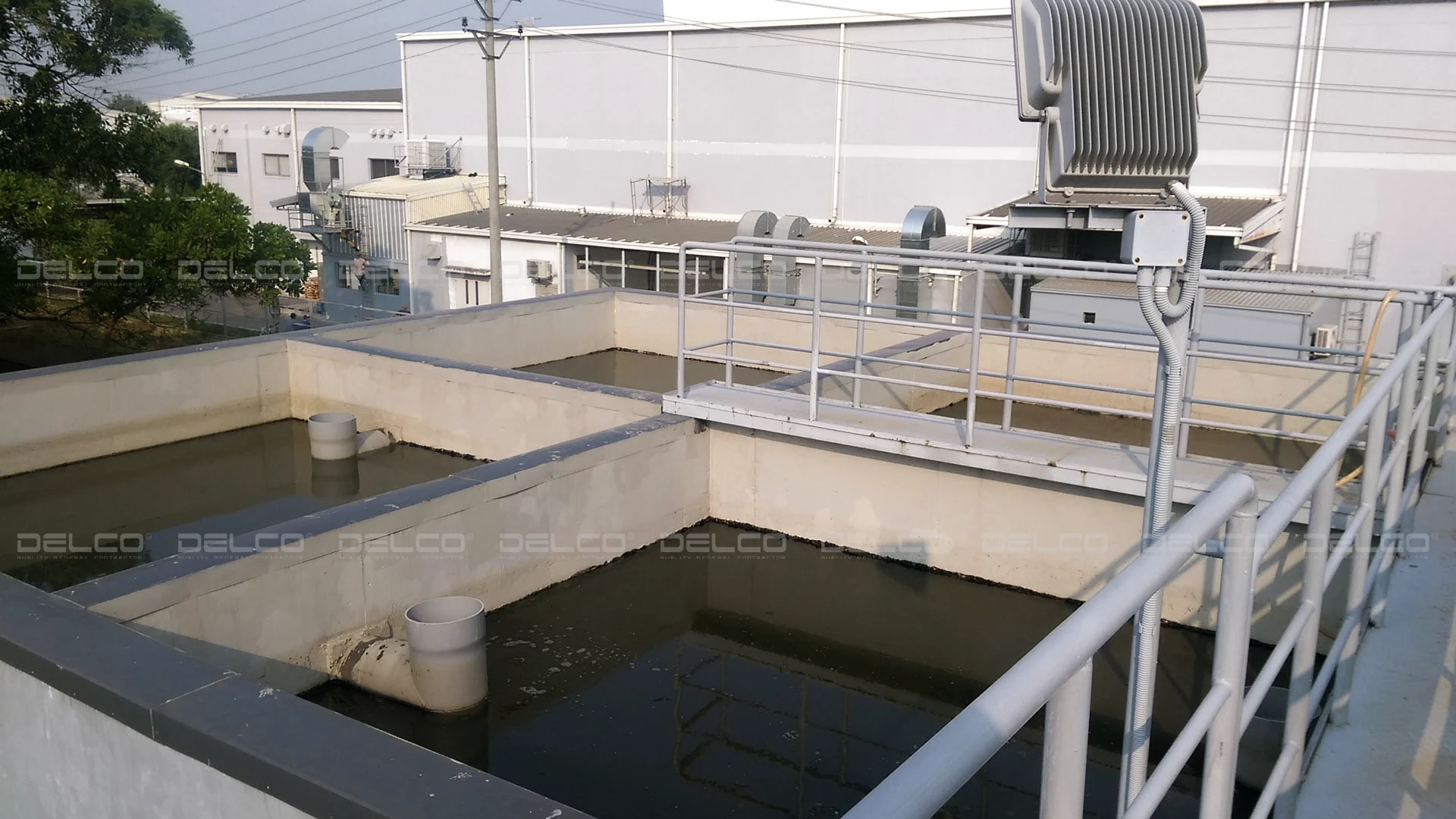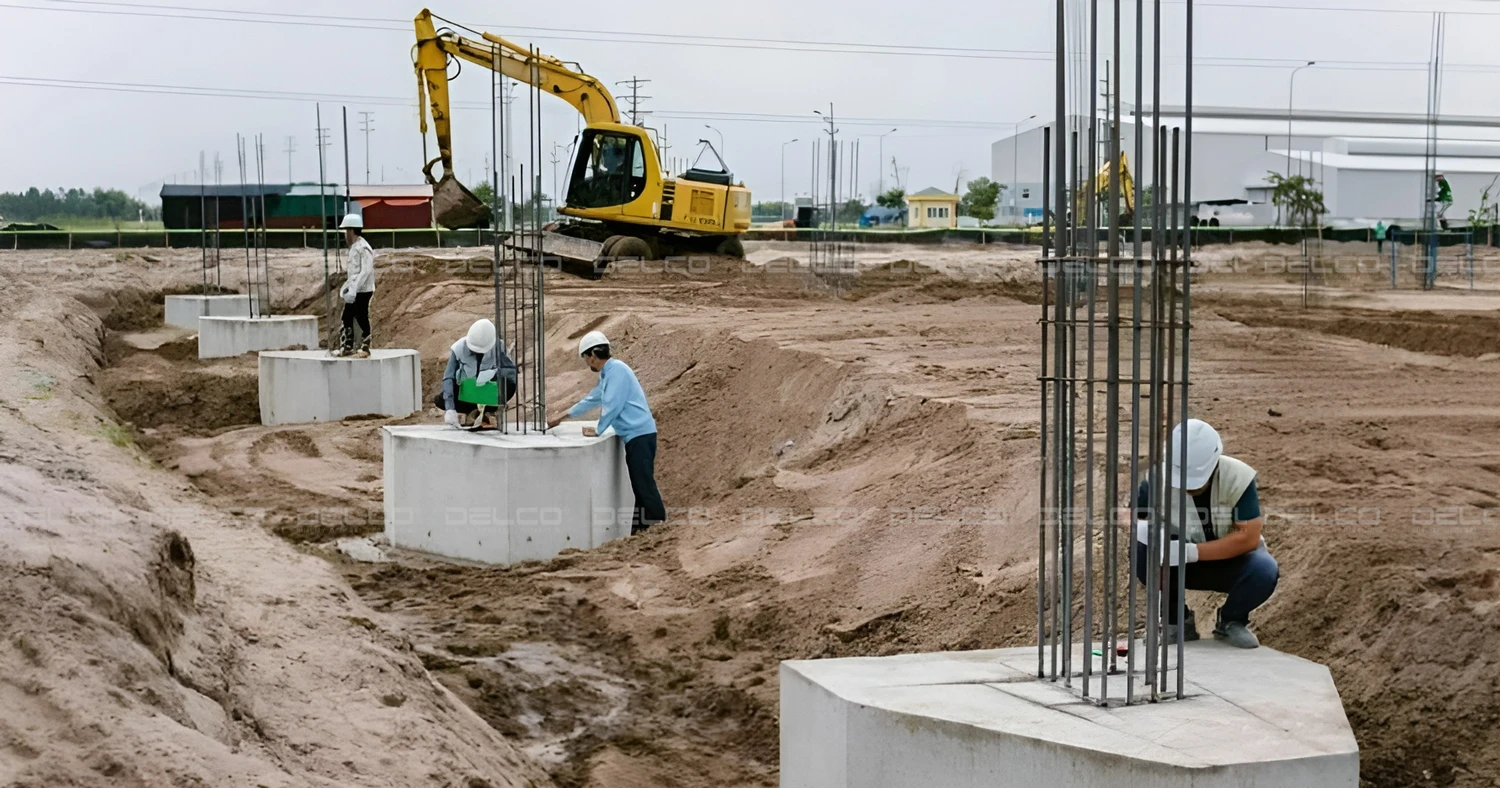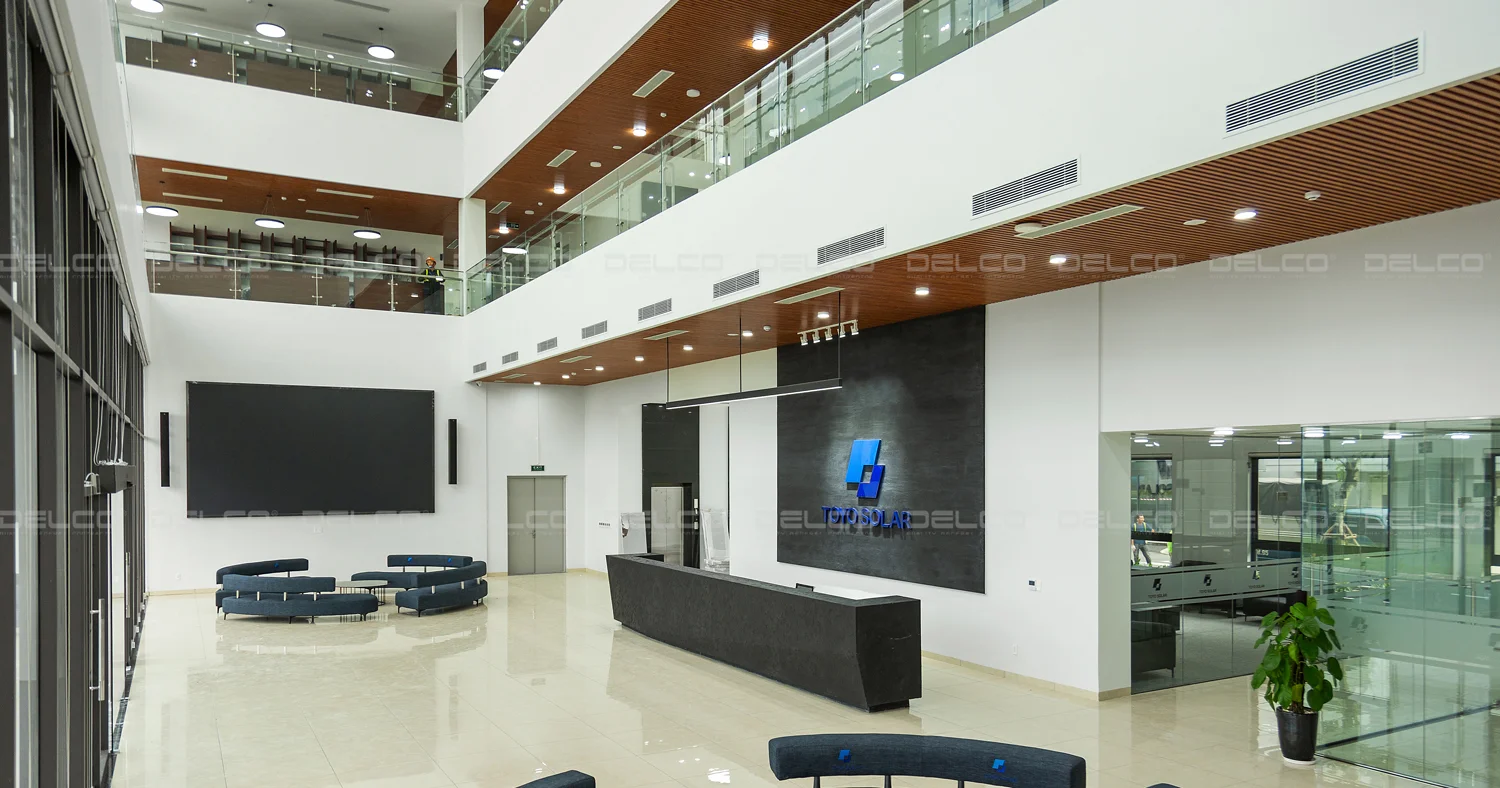Understanding the types of general contractor contracts and the pros and cons of each contract will help investors choose the most suitable type of contract. The article presents the pros and cons and differences between construction contracts that investors need to understand.
According to characteristic of project
General contractor contracts classified by project characteristic include three most common forms:
- Design – Build General Contractor Contract: The general construction contractor is responsible from the design stage to the construction stage of the project.
- EPC General Contractor Contract (Engineering, Procurement and Construction General Contractor Contract):The general contractor is responsible for designing, providing technological equipment and constructing works.
- Lump Sum Turnkey Contract: The general construction contractor participates in the project from the actual survey stage to the basic design, detailed design, construction, M&E construction, even providing smart factory solutions, if investor require.
Lump Sum Turnkey contract is a form of contract for investors who do not have much experience or are entering the construction field for the first time. This contract helps reduce project management pressure for the Investor, saving a lot of management costs and time, but still has an overview from the design solution to the construction method, the overall cost of the project.

The pros and cons and differences between types of contractor contracts based on project
| Design – Build | EPC | Lump Sum Turnkey | |
| Role of general contractor | Being responsible for both design and construction | Being responsible for designing, constructing and providing technological equipment | Being responsible for surveying, designing and constructing and installing mechanical and electrical equipment, providing smart factories if required by the investor |
| Pros | – Saving time to do legal procedures. – The contractor takes full responsibility for the project. – The contractor has the ability to handle and propose suitable solutions when problems arise during the implementation process. | – Save time, costs and human resources because of only working with one major contact. – Ensure the legality of the entire project. – Have a detailed plan from the beginning. | – Have an overall cost plan from the beginning. – Save time, costs and reduce management pressure. – Construction according to design helps save time when inspecting projects. |
| Risks for investors | – Careful supervision is necessary due to the extensive workload, requiring the investor to have the capacity to supervise and inspect the contractor. The investor can hire a supervisor if necessary. – Costs may arise during the construction process because there is no overall cost plan from the beginning. | – The general contractor is assigned full authority, the investor may face financial and schedule risks due to the large scale of the project. – It requires contractors to have strong financial capacity and a large scale. | – The investor takes full responsibility for the project. |
| Cases should be applied | Applying when the investor has enough capacity to supervise and inspect the contractor. | Only applying if the investor clearly understands the machines, production lines and technical requirements of the system. The investor hires an EPC contractor to do the work, inspect and accept. | Being suitable for many projects, as long as the investor and contractor clearly agree on the scope of work and price from the beginning. |
| Requirements when selecting a general contractor | – Strong and abundant human resources. – A team of highly experienced and professional architects – Team of responsible and highly skilled workers | – Contractors have large scale and high financial capacity. – A team of highly experienced and professional architects. – Have knowledge and experience in equipment and technological production lines, ensuring machine quality, and a clear warranty policy. | – Reputable general contractor has extensive experience in the construction, and is able to control costs well. – A team of highly specialized architects and workers. |
According to the form of general contractor contract price

- Package contract: fixed contract value, unchanged throughout the process from bidding, contract performance to handing over the volume of work within the scope of the signed contract.
- Fixed unit price contract: is applied in the case that at the time of signing, due to many reasons, it is difficult for the two parties to determine the exact workload of the contract. Each work item will be agreed on a fixed price. The investor must pay the cost equal to the volume multiplied by the agreed unit price, accepting the risk of incurring costs due to the adjustment of the workload during the construction process.
- Adjusting unit price contract: In case it is difficult to determine specific costs due to volatile market factors, etc., an adjusting unit price contract is the most appropriate choice. The contract value will be equal to the adjusted unit price according to the signed contract, multiplied by the corresponding work volume.

With a package contract, the investor assigns all costs to the contractor, regardless of the market price fluctuations or the shortage/excess of materials. The general construction contractor must carefully balance all costs, estimate all risks, ensure the implementation of the project as committed without any additional costs compared with the agreed contract and design.

Pros and cons and differences between types of construction contracts in the form of general contractor contract price
| Turnkey contract | Fixed unit price contract | Adjustable unit price contact | |
| Unit price | The contract value does not change throughout the project implementation process. | Permanent | Price adjusted according to market price |
| Project workload | Being able to change during the implementation process. | Permanent | |
| Contract value | = Workload x Fixed price | = Workload x Adjusted price | |
| Pros | – Costs are clearly determined from the beginning, no costs arise during the project implementation process. – Investors are not affected by market price fluctuations | – Flexibility to change requirements and workload. | – Flexibility in changing supplies and materials. – In case of decreasing the market price, project costs also reduce.. |
| Risks for investors | – Limit adjustments and changes to requirements once the project has been started building. | – Accept the risk of additional costs due to adjusting workload. | – Uncertain initial costs lead to difficult financial management – Being affected by market price fluctuations |
| Cases should be applied | Being suitable for all projects | Being suitable for projects where it is difficult to determine the exact amount of work from the beginning. | Being suitable for projects where costs are difficult to determine due to fluctuating market factors. |
| Requirements when selecting a general contractor | A reputable contractor can balance all costs, estimate risks, and ensure progress without incurring any additional costs. | Choose a reputable and quality contractor. | |







